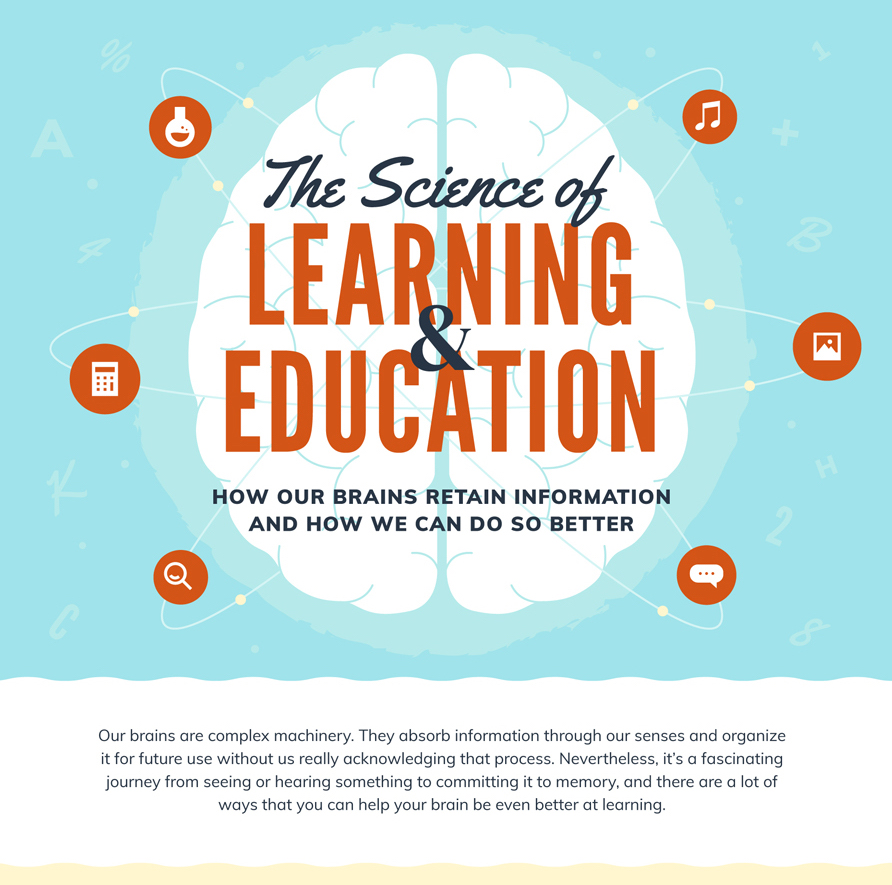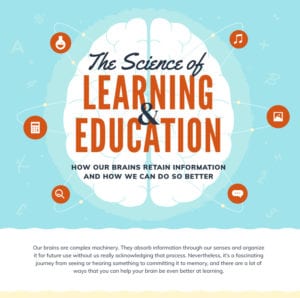The Science of Learning and Education

Find your degree
The Science of Learning and Education
How Our Brains Retain Information and How We Can Do So Better
Our brains are complex machinery. They absorb information through our senses and organize it for future use without us really acknowledging that process. Nevertheless, it’s a fascinating journey from seeing or hearing something to committing it to memory, and there are a lot of ways that you can help your brain be even better at learning.
The Cortex (1)
Information in the form of sight and sound is processed by your cortex.
Learn Better with Visuals (2)
- 30% of the cortex is devoted to visual processing
- When studying, use:
- flashcards,
- images, and
- diagrams
The Basil Ganglia (3)
Information from other parts of your brain is coordinated by your basil ganglia.
https://www.webmd.com/brain/picture-of-the-brain#1
Learn Better with Context (2)
Reference the bigger picture when trying to remember small facts.
https://lifehacker.com/six-things-you-should-know-about-how-your-brain-learns-1773183447
The Hippocampus (1)
Information from the cortex is stored as memories by your hippocampus.
Learn Better with Sleep (2)
Up to 40% — Reduction in learning from sleep deprivation
Be sure to sleep the nights both before and after study sessions.
The Prefrontal Cortex (1)
Information from both your cortex and hippocampus is used by your prefrontal cortex to solve problems.
Neurons
100 billion: The number of neurons in our brain. (4)
https://www.ncbi.nlm.nih.gov/pmc/articles/PMC2776484/
Your brain functions by bypassing electrical signals from one neuron to another. Information triggers neurons to signal other neurons. The more often neurons are triggered, the more efficient they become. This is why practice improves performance. (1)
Learn Better Through “Interleaving” (2)
Don’t study single subjects for blocks of time, or “block practice.” Instead, “interleave” your study by mixing subjects.
In an experiment studying interleaving, students scored:
60% — Performance scores of students exposed to “interleaving”
30% — Performance scores of students exposed to “block practice”
SOURCES


